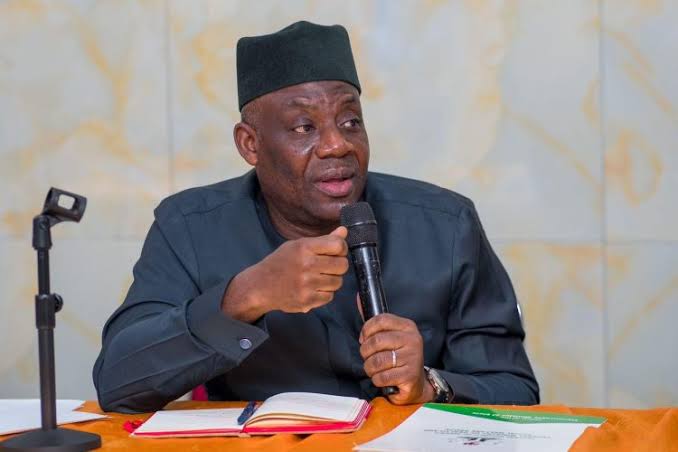The recent astronomical increment in electricity tariffs in Nigeria by the Minister of Power, Adebayo Adelabu, is not only unfortunate because it was fallaciously articulated; it is also, in the context of the assigned economic role of all governments that are duly formed within the framework of the Nigerian Constitution, an outrageous step that totally runs against the Fundamental Objective and Directive Principles of State Policy concerning the national economy, which he pledged to “protect and preserve ” during his ministerial swearing-in rituals.
The whole development, as we shall see shortly, stems from a badly formulated and practically counter-productive policy that is unintellectually rooted in faulty public utility economics or a clear misreading of the IMF and World Bank templates; the hike is also founded on non-existent legal frameworks because, under the present Constitution of Nigeria, any government economic policy that does not comply with the stipulations of Section16 (1) (a) and (b) are normatively defective.
For the avoidance of doubt, sub-section (a) of Section 16 of the Constitution explicitly directs that the State shall “harness the resources of the nation and promote national prosperity…” while subsection (b) directs that the State shall “control the national economy in such a manner as to secure the maximum welfare, freedom and happiness of every citizen…”. It is no telling, therefore, that an official policy that has, in one fell swoop, jacked up the electricity tariff payable in the present depressed circumstances is a “cruel and unusual burden” on the citizens, the type which, in Rousseau’s terms, is a violation of the Social Contract under which it was installed and, in the particular case of Nigeria, an affront on the Fundamental Objectives and Directive Principles of State Policy, which now forms the basis of governmental legitimacy in Nigeria.
There is no way the arbitrariness and condescending processes (no consultation with consumers) leading to the hikes as proclaimed by the Minister and further broken down by officials of NERC, the agency responsible of regulating electricity services in Nigeria, will not hurt the overall electoral standing of this administration down the road because they constitute a serious dent on the Renewed Hope Agenda. In all fairness, Mr. President has so far never shirked from his responsibilities and promises, a leadership style that is evidently reassuring. We hope he will take a statesman’s look at this annoying ministerial hike again and do the needful.
But for the exemplary performances of some minsters in his government, the oil subsidy brouhaha was capable of undermining the stability of the inchoate administration as it was savagely buffeted right, left and centre over unprecedented immiseration cries across the land caused by subsidy removal on fuel. When, however, people see the zeal and remarkable impacts being made by individuals like Nyesom Wike, the FCT minister, the Internal Affairs minister, Olubunmi Tunji-Ojo, the works minister, Engr David Umahi, etc., they began to see and, indeed, respect the determination of President Tinubu to turn things around. Unfortunately, many of them are yet to prove their mettle in that regard.
The Minister of Power, Adebayo Adelabu, is unquestionably proving to be a major policy and political liability to the Tinubu administration, judging by the extremely reckless and cavalier manner he sought to justify the “banded” and rapacious hike in the electricity tariff from a baseline of 68 Naira to 225 Naira, and increment that is close to 300 percent! Which economic model would permit such a scandalous increase without causing tremendous dislocations on the system? By the way, is the minister unaware that public utilities service delivery all over the developed and developing world is on a stable 24/7 basis contrary to his embarrassing “allotted hours” of service or the predictably sporadic supply schema?
Even those Third World-specific anti-subsidies stance of the IMF still concedes to the fact that “public utility pricing involves balancing various competing government policy objectives, from equity concerns to ensuring the financial sustainability of providers and balancing public finances.” Asking hapless Nigerian citizens to pay such a hefty tariff that is not matched by what they get in return is actually over-taxing them in other to subsidize the inefficiencies and corruption bedeviling our public utilities sector. What is more, to do so at a time when wages have been made useless by inflation is an exercise in provocative administrative callousness.
 Adelabu
AdelabuEven the host country of the IMF, the United States, the foremost capitalist nation of the world, understands the limits of the ‘free market’ bogey where the so-called “price mechanism” determines the forces of demand and supply. Why would a Nigerian government official with the interest of Nigerians at heart accept, hook line and sinker, a developmental theory of subsidy which the proponents continually avoid in their own countries?
The US government, whether under the Republicans or the Democrats have continuously subsidized Electricity, Food and Transportation. It is the same in the UK, Japan, Germany and most of the industrialized worlds, not to mention the generous subsidy regimes that are available in similar countries producing oil as Nigeria in the Middle East and elsewhere. For the attention of Minister Adelabu, according to a recent International Energy Agency report, fossil fuel subsidies have hit a “global high of $1 trillion in 2022 – the same year Big Oil pulled in a record $4 trillion of income. In the United States, by some estimates, taxpayers pay about $20 billion dollars every year to the fossil fuel industry”.
As was recently disclosed by U.S. Senator Sheldon Whitehouse (D-RI), Chairman of the U.S. Senate Budget Committee, “While many industries receive government subsidies, three of the biggest beneficiaries are energy, agriculture, and transportation.” In addition, especially since the coming on board of the Biden administration, “the US government has been giving grants to research companies developing either renewable or nonrenewable energy sources, issues bonds for certain power facilities it owns…”
Because the government understands that food security is a major component of national security, “Agriculture is permanently subsidized through cash payments and essentially nonrepayable loans to farmers.”
Our minister of power who took some uncanny pride in pointing Nigerians to what he calls “consumer management” abroad cannot say he has not heard of these huge subsidies being paid by the US and other citizens-conscious governments across the world. It was laughable when he spoke about people switching their refrigerators and other home appliances on for days because electricity is “cheap.” I have lived in the US for years and I don’t recall if I ever knew where the switches to my refrigerators and other daily appliances were because once they are installed, they function nonstop unless there is a fault.
How ignorant can a minister be in a world where one can now control his home, door keys, lightning, water sprinklers and other conveniences from anywhere in the world if electricity supply were being operated on his antediluvian switching “off and on” template? Does he think that Nigerians are also as ignorant as he is or pretends to be? The last time we heard of such an idiotic statement from public officials was in the pre-GSM days when Communication Minister, David Mark, made the famous policy howler that “telephones are not for the poor.”
Subsidy removal is welcome in certain situations but it must be calculated and applied to meet the common good within the Benthamite prisms of the “greatest good for the greater number.” This astronomical hike in electricity tariffs has put in motion a hyperinflationary whirlwind that would blow no one, especially the government in power, any good and that is why Mr. President, the boss, must step in to save the day. A 300 percent price increment is like adding petrol to fire in a polity that is already on edge. Adelabu electricity pricing policy is one heck of a policy faux pas that cannot stand.
• First published on April 10, 2024




 5 days ago
28
5 days ago
28








 English (US) ·
English (US) ·